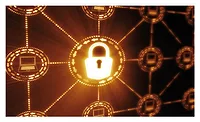U.S. National Cybersecurity Framework Now Available
“One of the key goals of advancing this nation’s cybersecurity is building trust and relationships between the government and the private sector.”
“Cybersecurity is a matter of homeland security,” said new Department of Homeland Security Secretary Jeh Johnson, adding “one of the key goals of advancing this nation’s cybersecurity is building trust and relationships between the government and the private sector.”
Johnson referred to the physical attack on the PG&E electrical substation in Northern California last April, when unknown persons fired at 17 large electrical transformers with high powered rifles and severed two sets of telecommunications lines. While PG&E recently announced plans to spend $86 million over the next three years on new physical security features at the largest of its more than 900 substations, Johnson said: “What the public needs to understand is that today the disruption of a critical public service like an electrical substation need not occur with guns and knives. A cyber attack could cause similar, and in some cases far greater damage by taking several facilities offline simultaneously, and potentially leaving millions of Americans in the dark.”
Last year, President Obama’s Executive Order 13636 called for the government to work with the private sector to develop a set of voluntary guidelines to shore up U.S. cyber defenses, and those guidelines – the Cybersecurity Framework – are now available to the public. Also announced in February was the Critical Infrastructure Cyber Community (C3) Voluntary Program, which would give companies that provide critical services like cellphones, email, banking, energy and state and local governments direct access to cybersecurity experts within DHS who have knowledge about specific threats, ways to counter them and how, Johnson said.
Through the C3, DHS is also offering a “Cyber Resilience Review,” which is a tool that helps organizations of all sizes evaluate the strengths and weaknesses of their cyber systems and conduct a risk-assessment. The C3 program will be provided by DHS at no cost to the business.
“Cybersecurity is a shared responsibility, and it all boils down to this: in cybersecurity, the more systems we secure, the more secure we all are,” Johnson added in his address at the White House.
Looking for a reprint of this article?
From high-res PDFs to custom plaques, order your copy today!




